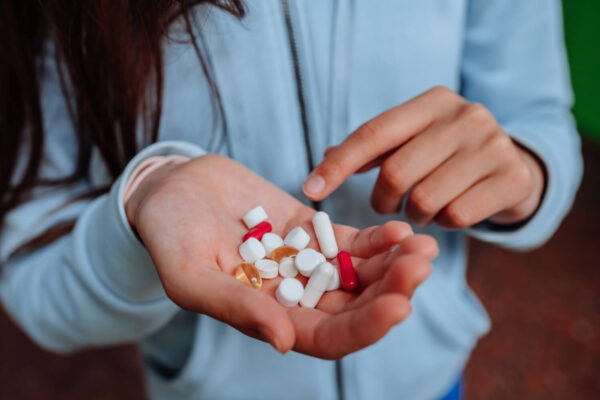When it comes to needing drug abuse and addiction treatment, one of the most formidable adversaries is, regrettably, relapse. It’s the unexpected twist in the path of recovery that can send even the most resolved individual spiraling back into the clutches of substance abuse. Relapse isn’t merely a physical capitulation; it’s also a mental and emotional setback, often shrouded in feelings of guilt and defeat. For those in the throes of this battle, as well as for the support system around them, understanding and preparing for the dangers of relapse is paramount to sustained recovery.
This post is dedicated to exploring the labyrinthine terrain of drug addiction and the crucial strategies that can swiftly steer one away from the precipice of relapse. Whether you are a recovering addict, a concerned loved one, or a healthcare professional, the mechanisms outlined herein are essential for fortifying the foundations of a robust recovery process. We at Drug Abuse and Addiction are here to ensure that you understand relapse.
Relapse: the Elephant in the Room
Relapse is a stark reality for many individuals navigating the treacherous waters of addiction recovery. The numbers don’t lie—according to the National Institute on Drug Abuse, the relapse rates for drug addiction are between 40% to 60%, which is in line with other chronic medical conditions like diabetes, hypertension, and asthma. This statistic, however, should not be misconstrued as a defeatist prophecy. Rather, it should serve as a wake-up call for the proactive deployment of relapse prevention strategies.
Understanding the psychology of relapse is the first step toward effective prevention. It is imperative to recognize that relapse is not a single event but a process that occurs in three stages:
- Emotional relapse, where one’s emotions are leading towards a relapse
- Mental relapse, characterized by thoughts of using
- Physical relapse, where the act of using occurs
Each stage provides an opportunity for intervention, and the goal is to address the root causes of these inclinations before they materialize into actions.
The Role of Triggers and Cravings
Relapse is often triggered by certain environmental, emotional, or cognitive cues that are reminiscent of the drug-using experience. These triggers can include people, places, things, emotions, and even the time of day. For example, a recovering alcoholic might be triggered by the smell of whiskey or a familiar drinking song, while a relapsed methamphetamine user might have succumbed to the isolation they associate with their drug use.
Cravings, on the other hand, are the physiological and psychological responses to these triggers. They are the mind and body’s clamor for the dopamine rush that the drug once provided.
Identifying and mitigating these triggers and cravings are critical. This can be accomplished through various therapeutic techniques, such as cognitive-behavioral therapy (CBT), which helps individuals recognize and reframe the thoughts that lead to cravings. Other strategies include mindfulness practices, distraction techniques, and the development of healthier coping mechanisms.
Building a Support Network
Staying sober after addiction is not a solitary pursuit; it requires a village. Building a robust support network is foundational to a successful recovery. This network may include family members, friends, sponsors, support groups, and healthcare providers, all of whom play a pivotal role in providing ongoing support, encouragement, and accountability.
Participation in support groups like Alcoholics Anonymous (AA) or Narcotics Anonymous (NA) provides a platform for individuals to share their experiences, learn from others, and receive the empathy and understanding that can only be imparted by those with similar life experiences. Through these networks, individuals can learn coping strategies, gain new perspectives, and foster a sense of belonging that is instrumental in maintaining sobriety.
Developing Coping Strategies
In the realm of addiction recovery, the old adage ‘idle hands are the devil’s workshop’ rings true. It is crucial for individuals to fill their time with activities that are meaningful, fulfilling, and that offer a sense of accomplishment. This can range from pursuing hobbies and interests to engaging in volunteer work or educational pursuits.
Furthermore, incorporating stress-reduction techniques into one’s daily routine is invaluable. Stress is a common trigger for relapse, and learning to manage it is a preventive imperative. This could involve regular physical exercise, meditation, or even the practice of progressive muscle relaxation.
For many, the creation of a daily routine that includes regular patterns of sleep, nutrition, exercise, and relaxation can be a protective factor against relapse. Such routines provide structure and stability, which can be especially grounding during tumultuous periods.
The Vital Role of Continuing Care
Drug abuse and addiction treatment is a lifelong commitment that does not end when an individual leaves a treatment program. Follow-up care, or ‘continuing care,’ is necessary to ensure that the principles and strategies learned in treatment remain ingrained in one’s daily life. This may involve outpatient therapy, medication-assisted treatment, or check-ins with a healthcare provider.
Continuing care serves multiple functions, including the monitoring of mental health, the reinforcement of coping skills, and the readjustment of treatment plans as necessary. It also allows for early intervention in the event of relapse, which can significantly improve the chances of a rapid and complete recovery.
Relapse as a Learning Tool
While relapse is often viewed with intense negativity, there is a school of thought that it can be a learning opportunity. Many who have experienced relapse report an increased understanding of their triggers and cravings, as well as a recognition of the need to further develop their coping skills. This insight can reignite one’s motivation for recovery and solidify their commitment to sobriety.
In this light, post-relapse support should focus on introspection and growth rather than shame and punishment. It is essential for recovering individuals to be honest with themselves and their support network about their experiences, in order to gain a deeper understanding of their path to recovery.
Resilience Through Nutrition and Exercise
An often overlooked component of relapse prevention is the role of nutrition and physical fitness. The consumption of a healthy, well-balanced diet can aid in the repair of the body and mind, which may have been subjected to the ravages of drug abuse. Facilities with us at Drug Abuse and Addiction will ensure that nutrition and exercise are implemented into your drug abuse and addiction treatment.
Exercise, particularly in the form of cardiovascular activities, is a powerful tool in the fight against relapse. It not only improves physical health but also releases endorphins that can serve as natural mood elevators, reducing the risk of depression and the cravings associated with it.
Medication-Assisted Treatment (MAT)
Medication-assisted treatment (MAT) is an evidence-based practice that combines the use of FDA-approved medications with counseling and behavioral therapies. It is an effective technique for those struggling with opioid, alcohol, or other substance use disorders and has been shown to improve patient survival, increase retention in treatment, and decrease illicit opiate use.
For individuals who might benefit from MAT, its implementation can be instrumental in preventing relapse. By curbing the physiological aspects of addiction, MAT can provide a welcome respite for individuals as they work on the cognitive and emotional components of their recovery.
Relapse Prevention Therapy Techniques
Relapse prevention therapy is an approach that aims to interrupt patterns of addictive behavior through the anticipation and management of relapse triggers. This can be achieved through various techniques, including:
- Identification of High-Risk Situations: This involves recognizing the situations, emotions, and thoughts that are most likely to lead to relapse.
- Cognitive Restructuring: This technique helps individuals replace negative thought patterns with positive, empowering ones, reducing the influence of cravings and triggers.
- Behavioral Rehearsal: Role-playing scenarios that would typically lead to relapse can help individuals develop effective responses and coping strategies.
- Skills Training: Learning new ways of coping with stress, managing time, and problem-solving can equip individuals with the tools to handle life’s challenges without turning to drugs.
The Importance of Dual Diagnosis Treatment in Drug Abuse and Addiction Treatment Centers
It is not uncommon for individuals struggling with drug addiction to have underlying mental health conditions. Dual diagnosis treatment is designed to address both the substance use disorder and co-occurring mental illness simultaneously. Failing to address the co-occurring disorder can significantly undermine the effectiveness of addiction treatment and increase the risk of relapse.
By understanding the interconnectedness of mental health and addiction, dual diagnosis treatment provides a more comprehensive and individualized approach to recovery. It is a forward-looking strategy that acknowledges the importance of a sound mind in a healthy body.
Creating an Effective Relapse Prevention Plan
With us, you can be sure that our facility will send you to the right drug abuse and addiction treatment center. An effective relapse prevention plan is specific to the individual, their substance use history, and their personal triggers. It should be comprehensive, actionable, and adaptable. Elements of a robust prevention plan may include:
- Identification of triggers
- Coping strategies for each trigger
- A support network list
- Healthy lifestyle choices
- Regular self-assessment and plan review
This plan should be both a collaborative effort between the individual and their support system and a living document that evolves with the person’s recovery.
Reach Out Today
Relapse is a formidable challenge that awaits many on the path to recovery from addiction, even after drug abuse and addiction treatment. It is a test of resilience, strategy, and support. By understanding the stages of relapse, identifying triggers and cravings, building a strong support network, developing coping strategies, participating in continuing care, viewing relapse as a learning opportunity, nurturing resilience through nutrition and exercise, exploring medication-assisted treatment options, utilizing relapse prevention therapy, ensuring the treatment of co-occurring mental health conditions, and creating a personalized relapse prevention plan, individuals can minimize their risk and empower their recovery.
The road to recovery is not an easy one, but with the right approach, it is navigable. By integrating these strategies into the fabric of one’s life, relapse can morph from a menacing presence into a distant possibility, allowing those in recovery to move forward with confidence and hope. Don’t hesitate to reach out to our expert team today. Give us a call at (808) 850-5161 or visit our website at www.drugabuseandaddiction.com.





